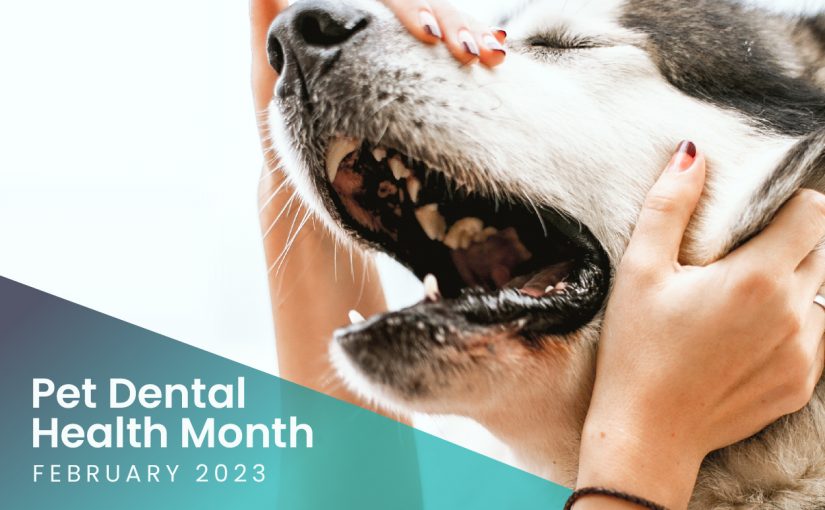Dental health can have a major impact on both humans and pets alike. This month our aim is to raise awareness of potential issues, symptoms, and prevention methods.
Due to the advances in Veterinary medicine, our pets are living longer, meaning there are very few pets that don’t experience some sort of dental issue.
Can my dog get cavities?
Yes, they can!
Did you know that human and canine cavities are identical in terms of what they are and the causes? Although due to the low-sugar intake of most dogs and general tooth shape, they are less common.
Dogs given sweet treats like fruit, biscuits and human treats are more at risk of developing cavities.
Unfortunately, almost 80% of dogs develop periodontal disease by the age of 2. There are some dog breeds that tend to be at higher risk of developing oral health problems, miniature or small dogs are often included in this since their teeth are relatively large in comparison to their jaw size. Bacteria thrives in these tight spaces meaning a higher risk of developing periodontal disease.
It can be very difficult to know whether a pet has dental issues until the decay has advanced significantly, however there are some symptoms to look out for
- Bad breath
- Obvious Dental Pain
- Excessive salivation
- Discolouration of the teeth
- Dark spots anywhere on a tooth
- Dropping food
- Loss of appetite
Can my cat get cavities?
Did you know that 8 out of 10 cats over the age of three experience some sort of dental disease? But are they the same as humans?
No, whilst being very common, it is identified as periodontal disease rather than simple cavities or decay.
Dental disease in cats is the shearing off and degradation of the tooth below the gum line resulting in painful lesions as well as destruction of the entire tooth structure. The most common type of periodontal disease is tooth resorption which affects up to 30% of all cats. TR cannot be prevented as the cause is unknown but being aware of the symptoms will allow you to get the proper dental treatment swiftly.
Common symptoms of dental problems are
- Bad breath
- Red, bleeding, or swollen gums
- Excessive salivation
- Altered eating habits
- Weight loss
- Behavioural changes such as fatigue or irritability
- Lack of grooming
As there is no specific cause for periodontal disease in cats, the best thing to do is keep on top of oral hygiene. Regular brushing paired with regular dental checks will help protect your cats dental health. The best time to introduce your cat to brushing is when they are young, and while brushing your cats teeth may seem impossible, many cats can be trained if you’re patient and consistent. If this is not a possibility, a good quality water additive and dry food will help fight periodontal disease.
Can poor dental health cause other problems?
Yes, just like in humans’ our pets need a good dental routine, if they are not properly looked after it can lead to issues all over the body. If bacteria enters the bloodstream it can lead to extra pressure on the internal organs, such as the heart, kidneys, liver, and lungs.
Poor dental health is also linked to heart diseases such as endocarditis, the risk can be up to six times higher in pets with advanced gum disease as opposed to those without. It can also complicate diabetes, the more severe the periodontal disease, the more serious the diabetes becomes.
It can also lead to other issues, such as jaw fractures. Conditions like periodontal disease and abscesses can gradually weaken our pet’s jawbone, meaning something as simple as eating crunchy kibble can lead to a fracture.


